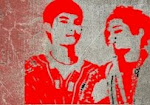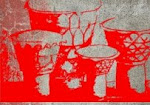
by Gino de la Paz
Published in Philippine Star, November 29, 2008
Due to a recent succession of awe-inspiring events, change has been a word the world-at-large has been hearing a lot lately. But before you think that this soft-focus hopefulness only envelops the White House, I’d like you to shift your gaze to a few makeovers taking place in our own corner of the Earth.
To mark the first-ever Global Entrepreneurship Week, the British Council in Manila, the UK government’s cultural relations organization, partnered up with the Philippine Youth and Employment Network (PYEN) and the kind folks at Ernst & Young by initiating a forum on social entrepreneurship. Aside from inspiring young people to become conscientious self-starters, the town-hall-meeting-of-sorts also coincided with the announcement of winners for “I Am A Changemaker,” the British Council’s nationwide project grant competition. The opportunity was too good to pass up and I’m not going to lie: It was the most enlightening Saturday afternoon I’ve had in months.
Making it happen
Turning the place into an instant lecture hall, the Ateneo de Manila University’s Harvey Keh, founder of Pathways to Higher Education, put the day’s session into perspective. “According to Amartya Sen, a Nobel Prize-winning economist, ‘Education and economic development are related to each other,’” Keh said. Both entertaining and sobering, his presentation threw down the bottom line: that Pinoy youth, through our inherent creativity and caffeine-fueled enthusiasm, can become catalysts for positive change in society. “The key word here is ‘I’. I can be a changemaker,” he concluded. “Why don’t you make it happen?”
Those saddled with a jaded point-of-view would’ve likely dismissed it all as annoying political rhetoric. (And after being pummeled by the same carpe diem-type empowerment — everyone from university professors to the Disney Channel has delivered this message at some point — it doesn’t come as a shock.) So to ground things, a few of Harvey Keh’s ex-students recalled their respective social entrepreneurship success stories.
Feel-good projects

The three winning groups from Luzon, Visayas, and Mindanao receive their grant from Nannette Mercado, assistant director for programmes, and David Hopkinson, British Council acting country director.
First in front was Mian Alampay, who talked about two feel-good projects: the Bright Kids Learning Center at the Batasan Hills Elementary School (bklc.multiply.com) and Chains for Change at the New Bilibid Prison Community. Some of the social entrepreneurship essentials on her list — or “SE-ssentials,” as she branded them — are a positive attitude and the right mindset. “You can dream big, but you still have to keep your feet on the ground,” she adds, realizing perhaps that sustainability is also something an aspiring mini-mogul should consider.
Next up were Maui Papa and Kat Avandela of Billabag, a line of accessories fashioned from discarded tarpaulins (billabag.multiply.com). They admit that finding materials and funding for their fledgling business was a challenge (“Companies wouldn’t give us their used tarps even if we told them it was for a good cause”), but their persistence is slowly paying off. Most important, the two see Billabag as a collaborative effort; to be fair to the housewives in Payatas who sew their bags, the girls have asked them for their input regarding compensation.
Social networking pedefined
Time finally came to announce the three winning project proponents. Proposal writing is an art form in itself and a five-member panel, representing leaders from business and the academe to government and social entrepreneurs, had to choose one team each from Luzon, Visayas, and Mindanao. These youth groups received P100,000 apiece to turn their awesome ideas into reality over a six-month period.
From Luzon came Bicol University’s Symbiosis, whose GREENPage project wants to “systematize and centralize” the collection of paper waste within the premier educational institution. The community that will benefit from all this is close to home — the 7,000 students that populate the main, east, and west campuses of the university.
Meanwhile, the Visayas region was repped by Project Green University, an initiative proposed by the University of San Carlos Cebu City’s Supreme Student Council. Their environmental endeavor aims to “clear out any renewable garbage waste in and around the university in exchange for usable school and office materials such as pens, paper, photocopy credit, etc.”
Last, Mindanao should be proud of Dire Husi, a project that seeks to “interconnect indigenous youth artisans and young urban fashionistas through fair trade.” If you ask the group from Iponan, Cagayan de Oro City, they’ll tell you that the answer to harmony lies in accessories. Dire Husi will provide young Manobo, Higaonon, Umayamnon, Tigwahanon, and Matigsalug people with a steady source of income as well as a market where their art can be appreciated and sold equitably. It’s win-win all around.
As guests mingled and participants swapped ideas and contact details, it became apparent that despite what has been said repeatedly about Filipino youth and apathy, all is not lost. There are still young people who possess the self-belief not only to think of innovative schemes but to put them into practice. The forum may have drawn to a close but for our generation’s newly-minted entrepreneurs, the challenge of running an economically viable and socially responsible business has definitely just begun.




No comments:
Post a Comment